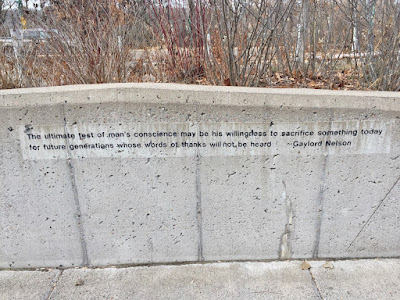Some time ago I managed to download a pdf of a Howard Zinn essay on Thoreau and Civil Disobedience. I don’t believe the essay is still available but you might try poking around. Here’s the basic information:
Henry David Thoreau was born on July 12, 1817. To celebrate his 200th birthday, we’re pleased to share this essay by Howard Zinn honoring Thoreau’s life and legacy.
Special thanks to Rick Balkin and Myla Zinn for permission to share this essay, which was originally published as an introduction to The Higher Law: Thoreau on Civil Disobedience and Reform, edited by Wendell Glick (Princeton: Princeton University Press 1973, 2004) and reprinted in Howard Zinn’s, A Power Governments Cannot Suppress (San Francisco: City Lights Books 2007).
Copyright ©2007 by Howard Zinn
City Lights Books
261 Columbus Avenue San Francisco, CA www.citylights.com
For today, I especially want to share one of the paragraphs found about midway in the piece.
At the center of Thoreau’s great essay (though he doesn’t make the reference) is that stunning idea expressed in the Declaration of Independence: governments are artificial creations, set up to serve the interests of the people. That idea was quickly overwhelmed by the reality of the Constitution and the establishment of an actual government. Now a small group of powerful men could use the government to advance their own interests, make war, and compromise with slavery. But why should people of conscience defer to such a government and its laws? Why should they not exercise their own moral judgment? When a government supports injustice, it is the duty of its citizens to withhold their support from the government, to resist its demands.
It seems to me that many of those who would govern the rest of US are increasingly in support of injustice and, unfortunately, some of them actually get elected. That means that, according to Thoreau, people of conscience should exercise their own moral judgement rather than defer to such a government and its laws. These days such issues are often further complicated because much of our “government” is actually a corporatocracy rather than a democracy.
 |
| “The ultimate test of man's conscience may be his willingness to sacrifice something today for future generations whose words of thanks will not be heard.” ― Gaylord Nelson
Photo by J. Harrington
|
Corporations are legal persons, not to be confused with real people and human beings despite court cases to the contrary. Remember, courts are as much artificial creations as the rest of government and the question becomes do court decisions “serve the interests of people?” Please think about these questions and do some more reading before you cast your votes next November.
Why I Voted the Socialist Ticket
I am unjust, but I can strive for justice.My life’s unkind, but I can vote for kindness.I, the unloving, say life should be lovely.I, that am blind, cry out against my blindness.Man is a curious brute—he pets his fancies—Fighting mankind, to win sweet luxury.So he will be, though law be clear as crystal,Tho’ all men plan to live in harmony.Come, let us vote against our human nature,Crying to God in all the polling placesTo heal our everlasting sinfulnessAnd make us sages with transfigured faces.
********************************************
Thanks for visiting. Come again when you can.
Please be kind to each other while you can.
No comments:
Post a Comment